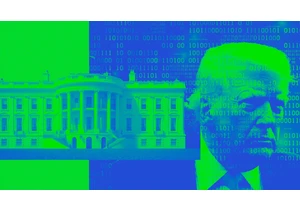While cryptocurrencies have been torched in China, their fellow blockchain technology, NFTs, have stayed relatively unscathed. There currently exists no regulation of the digital collectibles in the country, and people can buy them freely from online marketplaces—although they must pay in renminbi, not BTC or ETH, and the tokens are also not built on popular blockchains like Ethereum, but rather ledgers under Chinese regulators’ purview. Even so, their fortunes may now be turning as China looks to tighten its grip. This week, Tencent, the domestic tech giant behind the country’s ubiquitous social app WeChat, froze several accounts on the app that were linked to NFTs. According to a statement from the company, this was to “rectify” public accounts in order to “combat speculation in virtual currency transactions.” An official account from WeChat, on China’s social website Weibo, posted Wednesday that Tencent-verified accounts on its platform can display NFTs, but cannot facilitate secondary-market sales (which are restricted by China’s Cyberspace Administration). Similarly, so-called “mini programs” on WeChat can support NFTs sales exclusively as “gifts within the primary market,” and only in collaboration with blockchains registered with the cyberspace agency. According to the South China Morning Post, at least a dozen WeChat public accounts used to publish content for followers were reined in, although the account for Tencent’s own NFT trading venture, Magic Core, was left alone. Some were reportedly accused of fraud. Other targeted accounts must now submit certificates of cooperation with state-approved blockchain enterprises, which could presumably lift their suspension—although further regulation surely lies on the horizon. As crypto has barreled into the mainstream worldwide, China has fought to keep the movement under control, arguing that virtual money is volatile and risky, and branding it the currency of fugitives and scammers. It has banned government-unsanctioned digital assets from banks and vendors, and criminalized Bitcoin mining in coal-rich regions under threat of stiff punishment. This crackdown has also come in the midst of a broader crusade against a number of technology industries, including homegrown companies in gaming (by setting video game playtime limits for youth), social media (by deleting fandom accounts including those for K-pop group BTS), fintech (by scuttling Ant Group’s gigantic almost-IPO), and ride-hail apps (by thrashing Didi’s New York Stock Exchange listing).
Connectez-vous pour ajouter un commentaire
Autres messages de ce groupe

Welcome to AI Decoded, Fast Company’s weekly newsletter that breaks down the most important news in

The data nerds are fighting back.
After watching data sets be altered or d

Chris Guillebeau spent years racing against time, visiting all 193 countries before he turned 35, hosting annual gatherings of thousands, and writing bestsellers like The $100 Startup. Bu

As my family settles into a whole new city and community, I’ve been eagerly exploring a variety of sites and services for discovering new gems and getting to know our area. And while our recent cr


If you can’t afford a lawyer, it turns out there’s nothing stopping you from sending a scary-looking letter that, at first glance, seems to come from one—and hoping the recipient doesn’t read the

